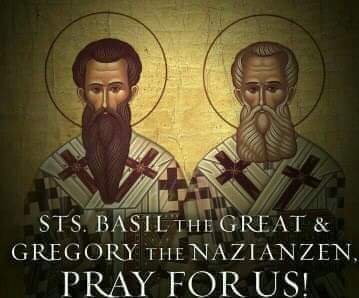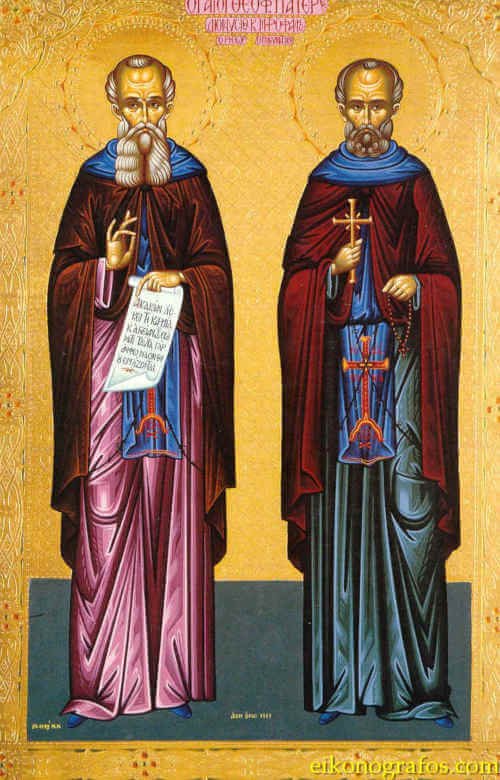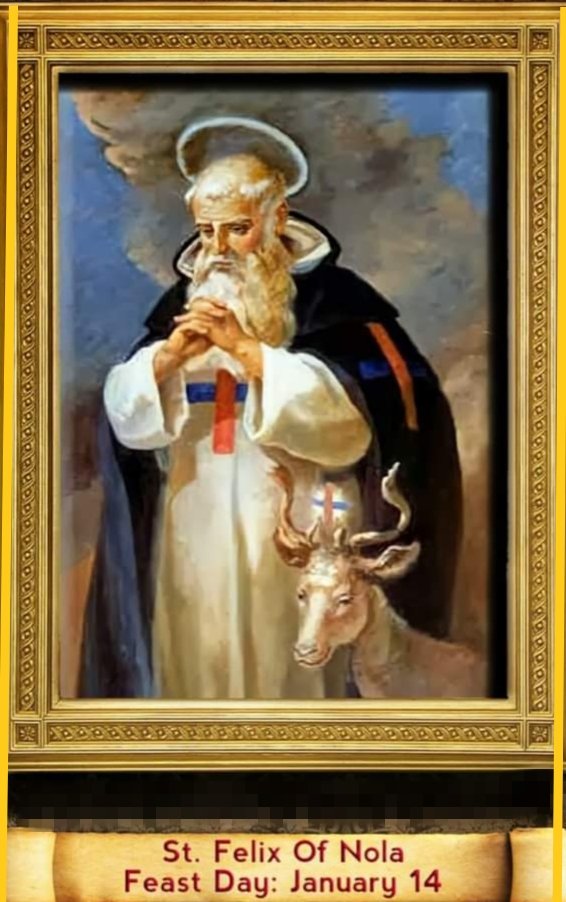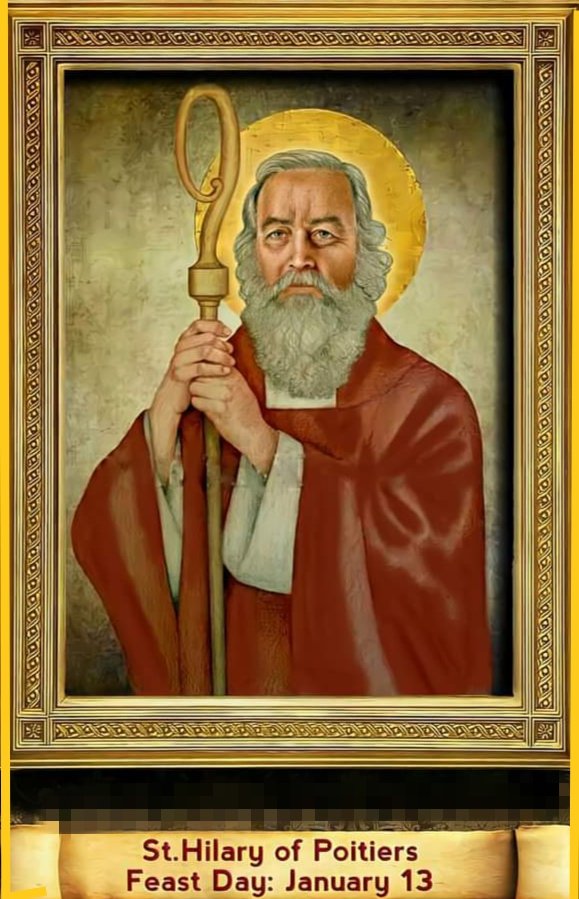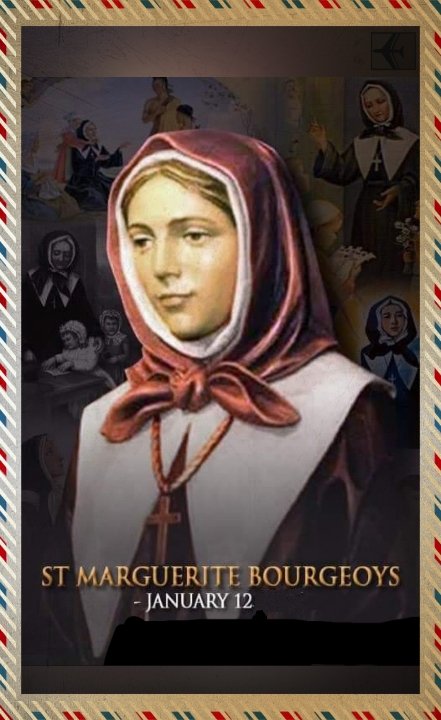
THE FEAST OF THE EPIPHANY
January 2, 2022
MEMORIAL OF THE MOST HOLY NAME OF JESUS – 3rd JANUARY
January 3, 2022FEAST OF SAINT BASIL AND SAINT GREGORY
FEAST DAY – 2nd JANUARY
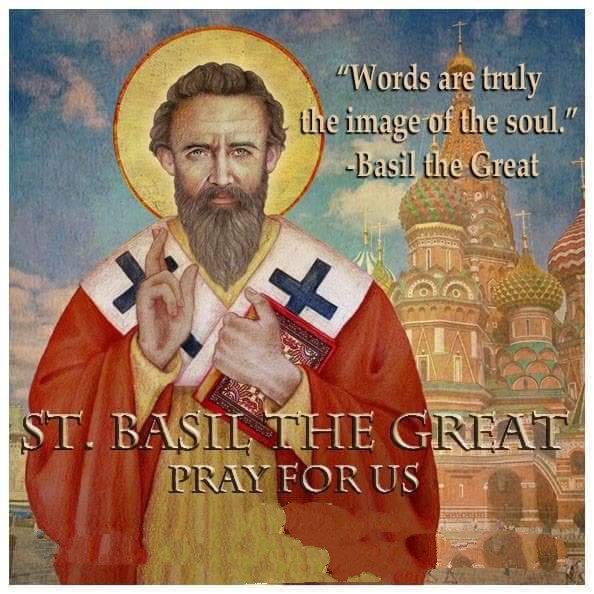
SAINT BASIL THE GREAT
Basil was born about 330, the oldest of four sons; three of his brothers became bishops, one of whom was St. Gregory of Nyssa. His pious grandmother Macrina exercised a great influence upon his religious education: “Never shall I forget the deep impression that the words and example of this venerable woman made upon my soul.” Between St. Basil and St. Gregory of Nazianzen an intimate friendship existed from youth to old age. Of Western monasticism St. Benedict was the father and founder, of Eastern monasticism, St. Basil.
As bishop, Basil was a courageous and heroic champion of the Catholic faith against the Arian heresy. In 372 Emperor Valens sent Modestus, the prefect, to Cappadocia to introduce Arianism as the state religion. Modestus approached the holy bishop, upbraided him for his teaching, and threatened despoliation, exile, martyrdom, and death. To these words of the Byzantine despot, Basil replied with the peace of divine faith: “Is that all? Nothing of what you mentioned touches me. We possess nothing, we can be robbed of nothing. Exile will be impossible, since everywhere on God’s earth I am at home. Torments cannot afflict me, for I have no body. And death is welcome, for it will bring me more quickly to God. To a great extent I am already dead; for a long time I have been hastening to the grave.” Astonished, the prefect remarked: “Till today no one has ever spoken to me so courageously.” “Perhaps,” rejoined Basil, “you have never before met a bishop.” Modestus hastened back to Valens. “Emperor,” he said, “we are bested by this leader of the Church. He is too strong for threats, too firm for words, too clever for persuasion.”
Basil was a strong character, a burning lamp during his time. But as the fire from this lamp illumined and warmed the world, it consumed itself; as the saint’s spiritual stature grew, his body wasted away, and at the early age of forty-nine his appearance was that of an old man. In every phase of ecclesiastical activity he showed superior talent and zeal. He was a great theologian, a powerful preacher, a gifted writer, the author of two rules for monastic life, a reformer of the Oriental liturgy. He died in 379, hardly forty-nine years old, yet so emaciated that only skin and bones remained, as though he had stayed alive in soul alone.
Gregory, surnamed the “Theologian” by the Greeks, was born at Nazianz in Cappadocia in 339. He was one of the “Three Lights of the Church from Cappadocia.” To his mother, St. Nonna, is due the foundation for his saintly life as an adult. He was educated at the most famous schools of his time – Caesarea, Alexandria, Athens. At Athens he formed that storied bond of friendship with St. Basil which was still flaming with all the fervor of youthful enthusiasm when he delivered the funeral oration at the grave of his friend in 381.
Gregory was baptized in 360, and for a while lived the quiet life of a hermit. In 372 he was consecrated bishop by St. Basil. At the urgent wish of Gregory, his father and bishop of Nazianz, he assisted him in the care of souls. In 381 he accepted the see of Constantinople, but grieved by the constant controversies retired again to the quiet life he cherished so highly and dedicated himself entirely to contemplation.
During his life span the pendulum was continually swinging back and forth between contemplation and the active ministry. He longed for solitude, but the exigencies of the times called him repeatedly to do pastoral work and to participate in the ecclesiastical movements of the day. He was unquestionably one of the greatest orators of Christian antiquity; his many and great accomplishments were due in great measure to his exceptional eloquence. His writings have merited for him the title of “Doctor of the Church.”
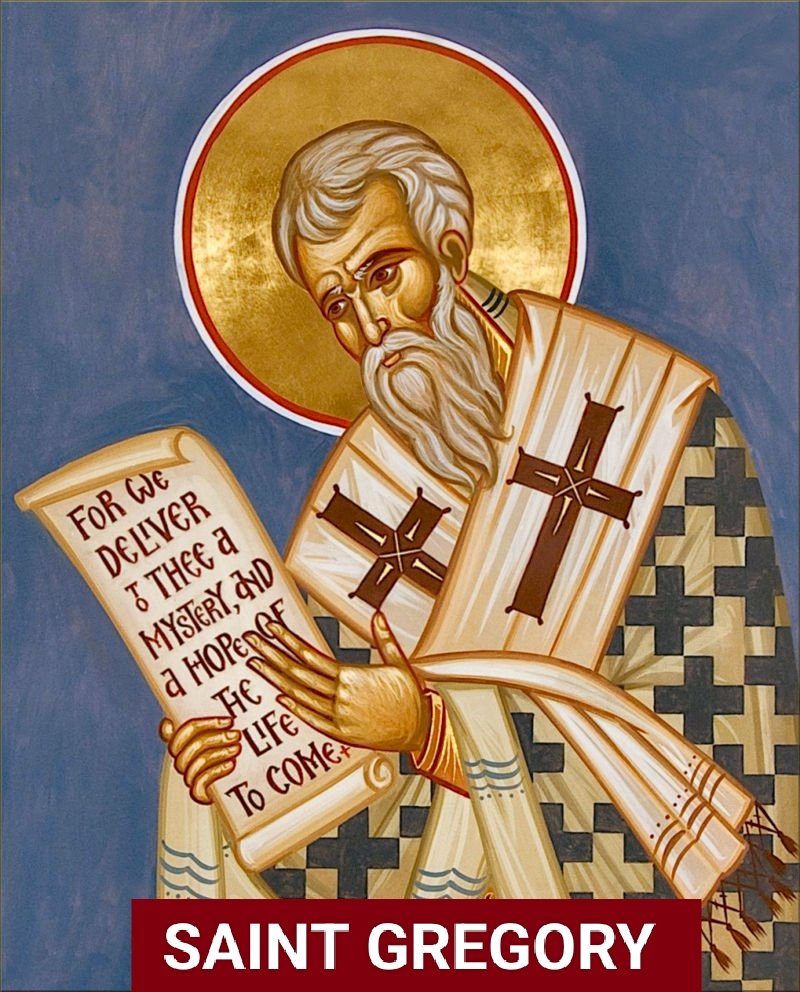
SAINT GREGORY
Gregory, surnamed the “Theologian” by the Greeks, was born at Nazianz in Cappadocia in 339. He was one of the “Three Lights of the Church from Cappadocia.” To his mother, St. Nonna, is due the foundation for his saintly life as an adult. He was educated at the most famous schools of his time – Caesarea, Alexandria, Athens. At Athens he formed that storied bond of friendship with St. Basil which was still flaming with all the fervor of youthful enthusiasm when he delivered the funeral oration at the grave of his friend in 381.
Gregory was baptized in 360, and for a while lived the quiet life of a hermit. In 372 he was consecrated bishop by St. Basil. At the urgent wish of Gregory, his father and bishop of Nazianz, he assisted him in the care of souls. In 381 he accepted the see of Constantinople, but grieved by the constant controversies retired again to the quiet life he cherished so highly and dedicated himself entirely to contemplation.
During his life span the pendulum was continually swinging back and forth between contemplation and the active ministry. He longed for solitude, but the exigencies of the times called him repeatedly to do pastoral work and to participate in the ecclesiastical movements of the day. He was unquestionably one of the greatest orators of Christian antiquity; his many and great accomplishments were due in great measure to his exceptional eloquence. His writings have merited for him the title of “Doctor of the Church”.
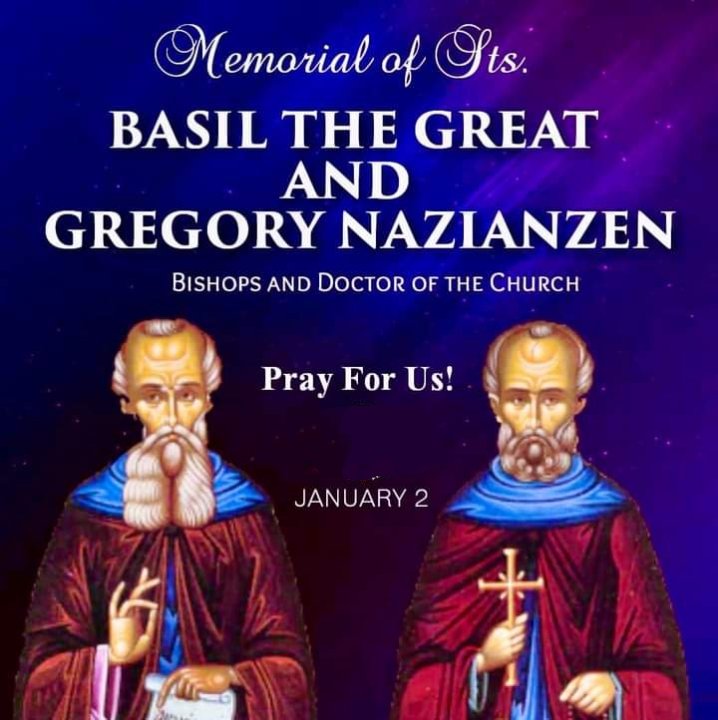
Saints Basil and Gregory lived so long ago, were so prolific, and played such crucial roles in so many areas of Church life, that they could each be remembered for any number of contributions to liturgy, theology, ecclesiology, Church history, monasticism, and even popular customs, especially in the Orthodox east. Yet perhaps their greatest contributions were as theologians who defined, fundamentally and decisively, what the word Trinity actually means; how Jesus is both fully God and fully man; and how the Holy Spirit is related to God the Father.
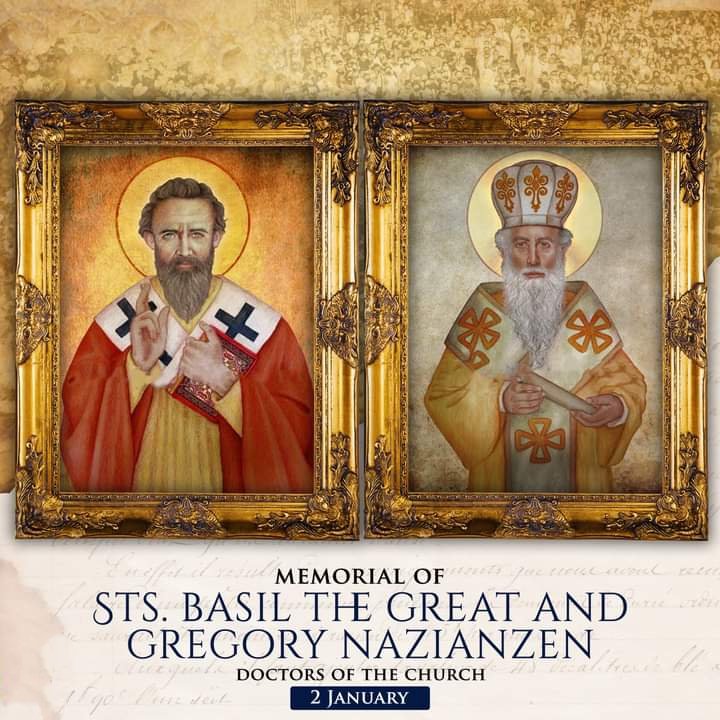
To today’s saints we owe the decisive words that the Holy Spirit “proceeds” from the Father and the Son. These words fall simply and familiarly from our lips. But the word “proceeds” was the fruit of intense thought and prayer. The Father generated the Son, but the Holy Spirit “proceeds” from them both. Dozens of millions of Catholics says reflexively every Sunday that the second person of the Trinity is “consubstantial” with the Father. Not equal in origin. Not equal in role. But “consubstantial,” or equal in nature.
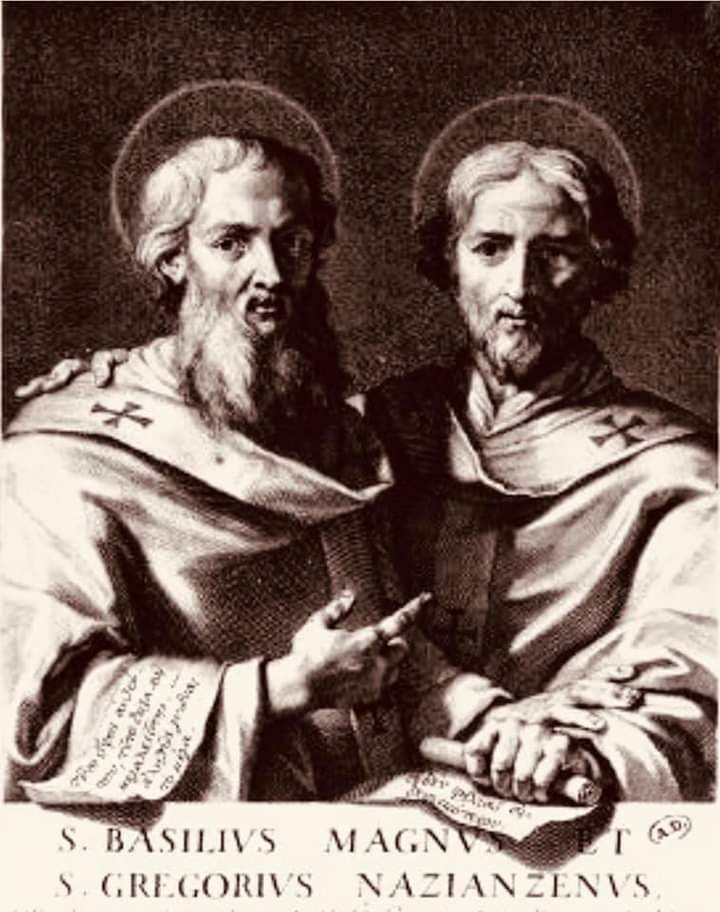
Thank you Saints Basil and Gregory! Thank you great Bishops and Doctors of the early Church! Thank you for pulling aside the veil of mystery for a peek into the Godhead. Without the teachings of the 4th century on the Trinity and Christ, there would be no Christmas trees. We celebrate the Christ child, for he is God. So carols are composed, mangers are displayed, lights are hung, and gifts are exchanged. Culture happens, culture flourishes, when theology makes sense. We thank Saints Basil and Gregory for their immense and extremely valuable contribution to the Christian doctrine.
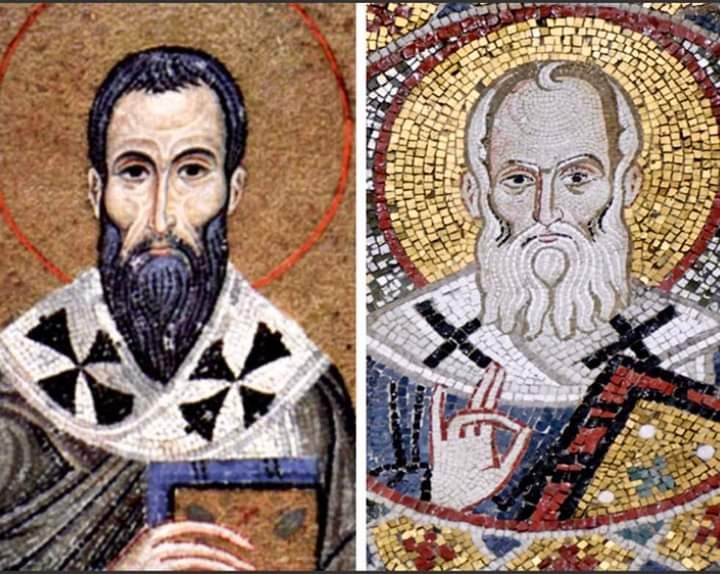
PRAYER
O noble Bishops and Doctors Basil and Gregory, we ask for your continued intercession to enlighten our minds to the truths of our faith, to remove the dark shadows that cause confusion, and to assist us in recognizing that good theology understands God as He understands Himself. When you gave us good teaching you gave us God. We seek nothing more.
(Source : excerpts from mycatholic.life)
